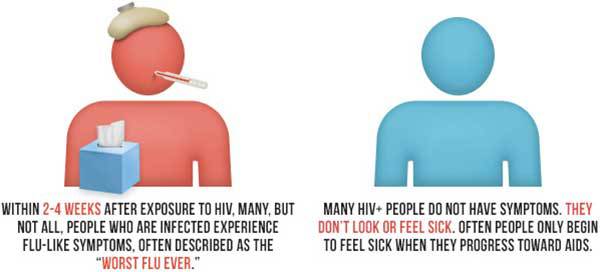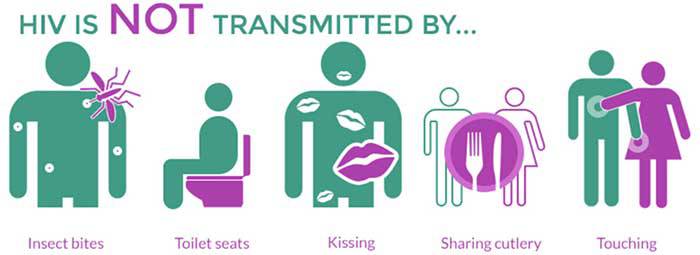4 HIV SYMPTOMS YOU SHOULD KNOW ABOUT
The symptoms of HIV can differ from person-to-person and some people may not get any symptoms at all. Without treatment, the virus will get worse over time and damage your immune system.
Here are some of the signs and symptoms that may come with HIV infection:
- Cough:
A dry, persistent cough can be a long term symptom of HIV infection. This symptom is not typically cured with medications like antibiotics and cough suppressants. Coughing may be an early symptom as the body reacts to the new virus. It is also a long-term symptom caused by the damaged immune system. A cough may develop into pneumonia, which can be a serious symptom with dangerous effects.
- Fever:
If you develop fever just after having unprotected sex, rush to your doctor immediately. You might also experience symptoms of the flu. This low-grade fever does not get cured even after taking medication.

- Swollen Lymph Nodes:
Swollen lymph nodes may be a starting sign of HIV infection. 67% of HIV sufferers may experience some sort of lymph node swelling. This commonly occurs in the neck, underarms, and groin region. Lymph nodes are distributed all throughout the body so any abnormal swelling could be a symptom. Lymph nodes swell as the immune system is activated and the body fights off infection.
- Sudden Weight Loss:
Weight loss in HIV-infected individuals is common through the progression of the disease. When first infected, the flu-like symptoms can cause nausea, diarrhea, and vomiting. This can cause a temporary loss in weight. As the illness progresses, weight loss can be caused by a condition called “AIDS wasting”. AIDS wasting is when a patient is said to lost 10% or more of their body weight, and has experienced related weight loss symptoms for a period greater than 30 days.


